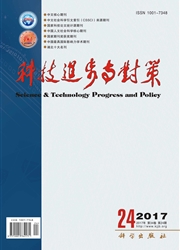

 中文摘要:
中文摘要:
行为经济学研究认为,人们在自利偏好之外还存在公平偏好,不公平对待将导致额外效用;而心理学实验又表明,不公平对待会使人们产生相对剥夺感并增加努力成本。基于公平偏好理论及相对剥夺观点,构建了三阶段晋升锦标模型,研究不公平对待对代理人努力水平的影响。结果表明,代理人的努力水平选择取决于对未来的预期,并且工资差距、努力成本、嫉妒和自豪心理以及监管精度都会影响代理人的努力水平。这一结论有利于预测代理人的行为规律,为建立最优激励机制提供更符合现实情况的理论依据。
 英文摘要:
英文摘要:
The experiments on behavioral economics demonstrate that the people are not purely self-interest but to a certain extent they also prefer the fairness, and the unfair treatment will result in some additional utilities.Furthermore, some psychological experiments indicate that the unfair treatment can bring people a relatively deprived feeling and increase their costs of effort.Based on the theories about fairness preference and relative deprivation, this paper builds a three-period tournament model to study the impacts of unfair treatment on the agent's effort level.The results show that the effort level of an agent depends on his expected future utility and some other factors including the wage spread, the cost of effort, the jealous or egoistic psychology and the supervision precision.These research results can be of advantage to predict an agent's behavioral regularities and provide a more realistic theoretical basis for the construction of optimal incentive mechanism.
 同期刊论文项目
同期刊论文项目
 同项目期刊论文
同项目期刊论文
 期刊信息
期刊信息
